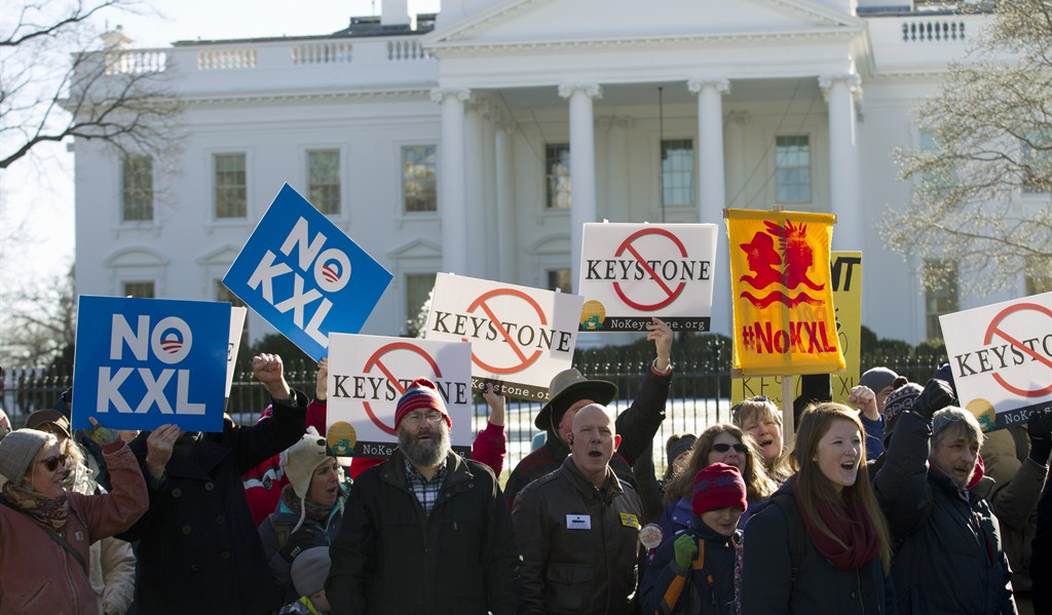The Keystone XL pipeline is an issue that Democrats are going to have to deal with sooner rather than later. Hillary Clinton has repeatedly dipped, ducked, dived, and dodged questions about her position on the project to the ire of the environmental left. In January of 2014, the State Department concluded that the construction of the pipeline “would not substantially worsen carbon pollution,” according to the New York Times. Still, the president vetoed legislation to get the project moving in February. Right now, the project is being reviewed (again) by State to determine if it is within our national interests. In the meantime, the seven-year delay on Keystone has cost us an estimated $175 billion in lost economic activity, according to American Action Forum:

The Keystone XL pipeline has the potential to bring huge gains to the United States, including energy independence, increased security and jobs. The $8 billion, 1,179 mile line, to be operated by Canadian firm TransCanada, would run from Montana to Nebraska and deliver an estimated 830,000 barrels a day of crude to refineries located along the gulf coast. At today’s price of crude at $51.76, this would gross over $42 million dollars a day or roughly $15 billion per year.TransCanada has waited since September 2008 for authorization of the pipeline. With crude oil prices at a 10 year low, approximately $175 billion in economic activity has been unrealized due to the delay.
The U.S. would benefit significantly from increased oil imports from Canada as it would lessen our reliance on imports from more unstable areas of the world such as the Middle East, Russia and Venezuela.
According to the Energy Information Agency, the U.S. imported approximately 9 million barrels per day of petroleum in 2014 from 80 countries with the bulk of its oil imports from Canada, Mexico, Saudi Arabia, Venezuela and Russia.
Since 2009, the U.S. has paid over $1 trillion to these top five countries with just over half of it going to Russia, Venezuela and Saudi Arabia.
Recommended
Kimberley WanWyhe, director of energy policy for AAF who conducted the analysis, also wrote that the pipeline could “gross over $15 billion in revenue a year.” Alas, it seems the Obama administration has decided it was more important to keep these people happy:

























Join the conversation as a VIP Member